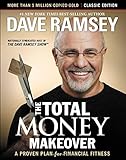Why is that?
It may have something to do with the fact that teaching money management is not necessarily a major priority for many parents. In that regard, here are a few money tips parents should be teaching their kids.
The Money Fundamentals Your Kids Need to Understand
Your kids are human, which means they will ultimately make mistakes. Some of those mistakes will have to do with, yes, money. That much is unavoidable. Where you can stack the deck somewhat in their favor is by ensuring they err in small ways while learning in big ways.
-
1. Interest Rates/Debt
Many kids have enjoyed the blessing of a weekly allowance. It may be $5.00, it may be $50.00. Either way, they are learning to some extent what it means to budget within a given timeframe. What they are not learning, however, is anything beyond that. Debt, for instance, and the concept of interest.
One way to impart such knowledge might be to serve as a “bank” to your kids. Perhaps your teenaged son has his eye on a new video game but lacks the money to purchase it immediately. How about you make him a loan with a very simple interest rate? Maybe 10%.
Each week, his subsequent allowances are reduced by an agreed-upon amount to cover both the loan and the corresponding interest. So long as the figures being used are not overly complex, your kid will not feel overwhelmed. Adjust the figures and terms as you see fit but keep the general concept in mind.
-
2. Bank Account
An allowance certainly qualifies as a good start where a teenager’s sense of financial responsibility is concerned. However, a legitimate bank account will better acquaint them with the nature of money management, and with the idea of earning interest.
When the time is right, perhaps when they are around the age of 15, you might consider helping your kid open a bank account. Receiving a bank statement each month will introduce a crucial element of legitimacy into the learning process.
-
3. Student Loans
Your kid may well be college-bound. Terrific. Do they have any sense of the financial commitment that comes with being in college? Walk them closely through the figures. Everything from tuition and meal cards to books and rent (or board).
Also familiarize them with the student loan and grant/scholarship options available to them. Having a sense of the differences between federal and private loans, for instance, will position your kid(s) to engage with such things in an informed manner.
Teaching Your Kids About Money, Concluded
As we have acknowledged, your kids will make financial missteps at some point. These do not need to be hugely consequential in scale. If introduced to key money concepts prior to reaching adulthood, they just may avoid any major mistakes.
Image Credit: Pixabay
helpful? … then please share it
| google+ |
FREE: college moving forms
- McGraw-Hill
- William J. O'Neil
- McGraw-Hill Education
- Penguin Books
- Vicki Robin, Joe Dominguez, Mr. Money Mustache
- Penguin Books
- Great product!
- Dave Ramsey
- Thomas Nelson
Last update on 2020-03-20 / Affiliate links / Images from Amazon Product Advertising API
-------------------------------------------------------------------------------------------------------------
end of post idea
-------------------------------------------------------------------------------------------------------------
view home improvement ideas at our Photo Remodeling center
Helpful article? Leave us a quick comment below.
And please share this article within your social networks.














